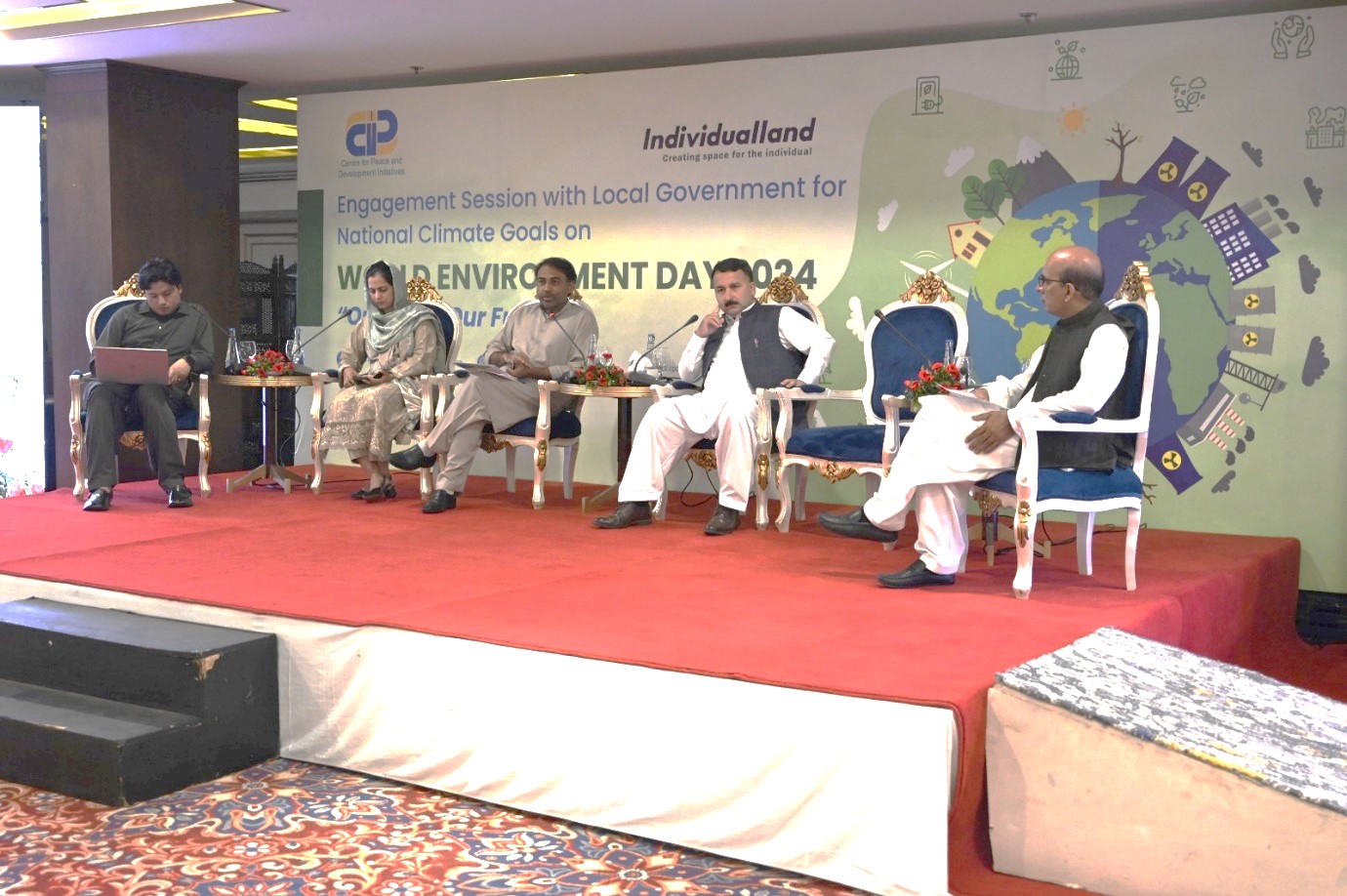ISLAMABAD, Jun 05 (APP):The Centre for Peace and Development Initiatives (CPDI) convened a significant event to address pressing climate cha
llenges and promote sustainable development in Pakistan on World Environment Day 2024 as a pivotal moment for environmental
advocacy and action.
Executive Director of CPDI, Mukhtar Ahmed Ali inaugurated the session and underscored the global nature of climate change and its profound impact on Pakistan, emphasizing the urgent need for collective action, a news release said.
He
advocated for a universal graduated taxation system to address environmental issues effectively and called for proactive measures, such as the ban on plastic bags, to mitigate environmental degradation.
The event further proceeded with informative panel discussions, moderated by Mukhtar Ahmed Ali and Sarmad Iqbal, focusing on the pivotal role of local governments in clim
ate action and strategies for land restoration.
The subsequent panel discussions, moderated by Mukhtar Ahmed Ali and Sarmad Iqbal, provided invaluable insights from esteemed panelists: Dr. Imdad Hussain highlighted the disparity in climate change experiences and stressed
the importance of practical knowledge and local customs in addressing environmental cha
llenges. Mr. Tahir Farooq underscored the significance of education, positive contributions, and empowering local communities in urban planning processes.
Anwar Sadaat addressed legislative barriers hindering local government work and shared his tree-planting initiative, emphasizing the need for legislation to empower local governments effectively.
Hurrah Javed critiqued the inconsistency in government policies, particularly regarding the ban on plastic bags, and emphasized civic responsibility in addressing environmental degradation.
The Executive Director CPDI emphasized
the importance of dialogue, civic responsibility, and maintaining traditional practices as cost-effective solutions to environmental issues.
Mukhtar emphasized
the importance of dialogue, civic responsibility, and maintaining traditional practices as cost-effective solutions to environmental issues.
Sarmad Iqbal highlighted the significance of gatherings in fostering dialogue and collective action towards environmental sustainability.
Sidra Riaz shared insights into Pakistan’s youthful population and her journey of environmental activism, emphasizing
the importance of engaging with students.
Jamil Asghar Bhatti addressed the lack of data-driven planning in Pakistan and
advocated for waste reuse, individual responsibility, and innovative financing solutions for waste management.
Samad discussed Pakistan’s growing e-waste problem, emphasizing the need for certified e-waste management companies and the role of technicians in proper disposal. Dr. Rizwan Ishad emphasized
the importance of moving forward with holistic solutions to climate change, stressing the need for win-win approaches that do not sacrifice the well-being of people.
Saima Williams, presented a comprehensive resolution aimed at empowering communities, strengthening local governance, and ensuring sustainable development in Pakistan.
The resolution encompassed key demands, including embedding clim
ate action in local development plans, securing funding for local climate initiatives, and fostering collaboration between local and national governments.
The event concluded with a vibrant exchange of ideas and a commitment to collective action for a sustainable future.
CPDI urges all stakeholders to join in these efforts to secure a sustainable and resilient future for Pakistan. Together, we can make a significant impact and ensure the well-being of our environment and communities.
